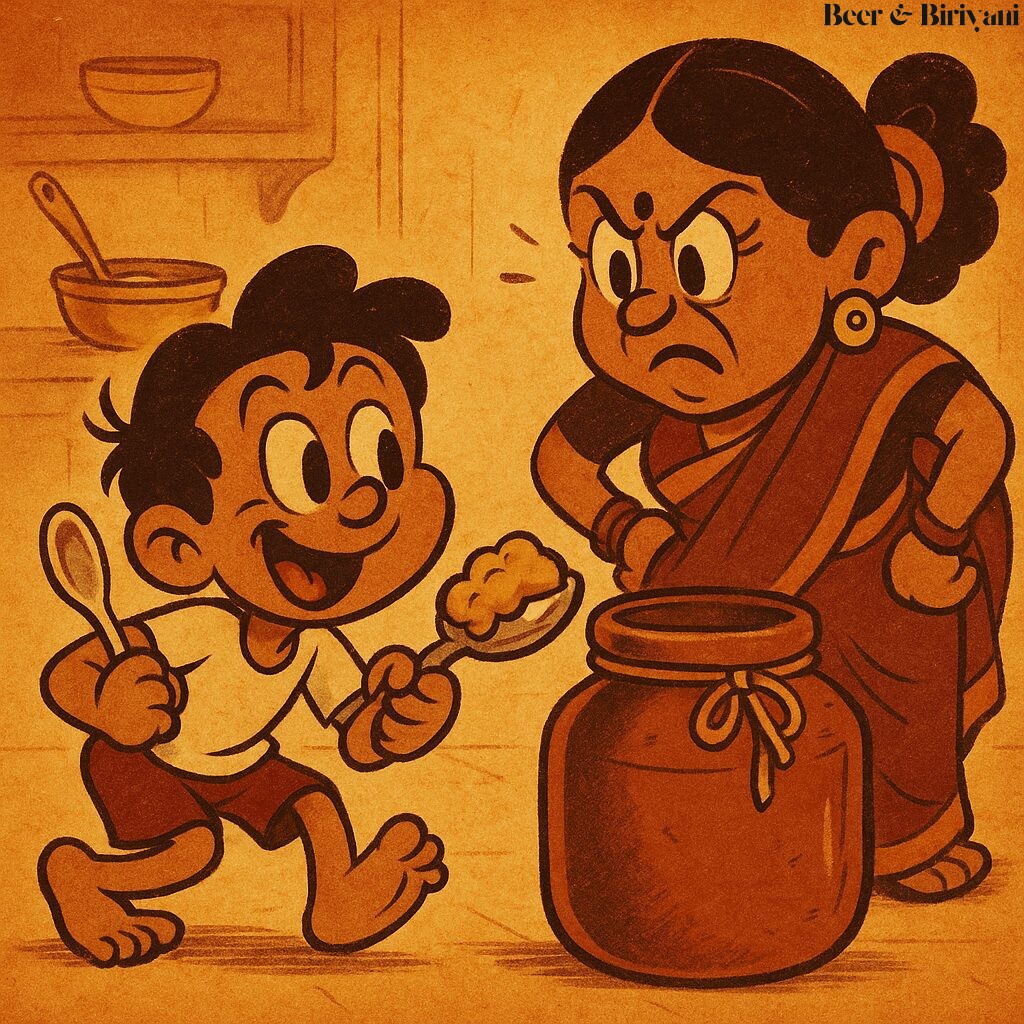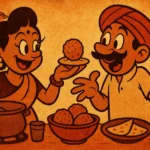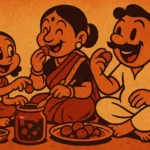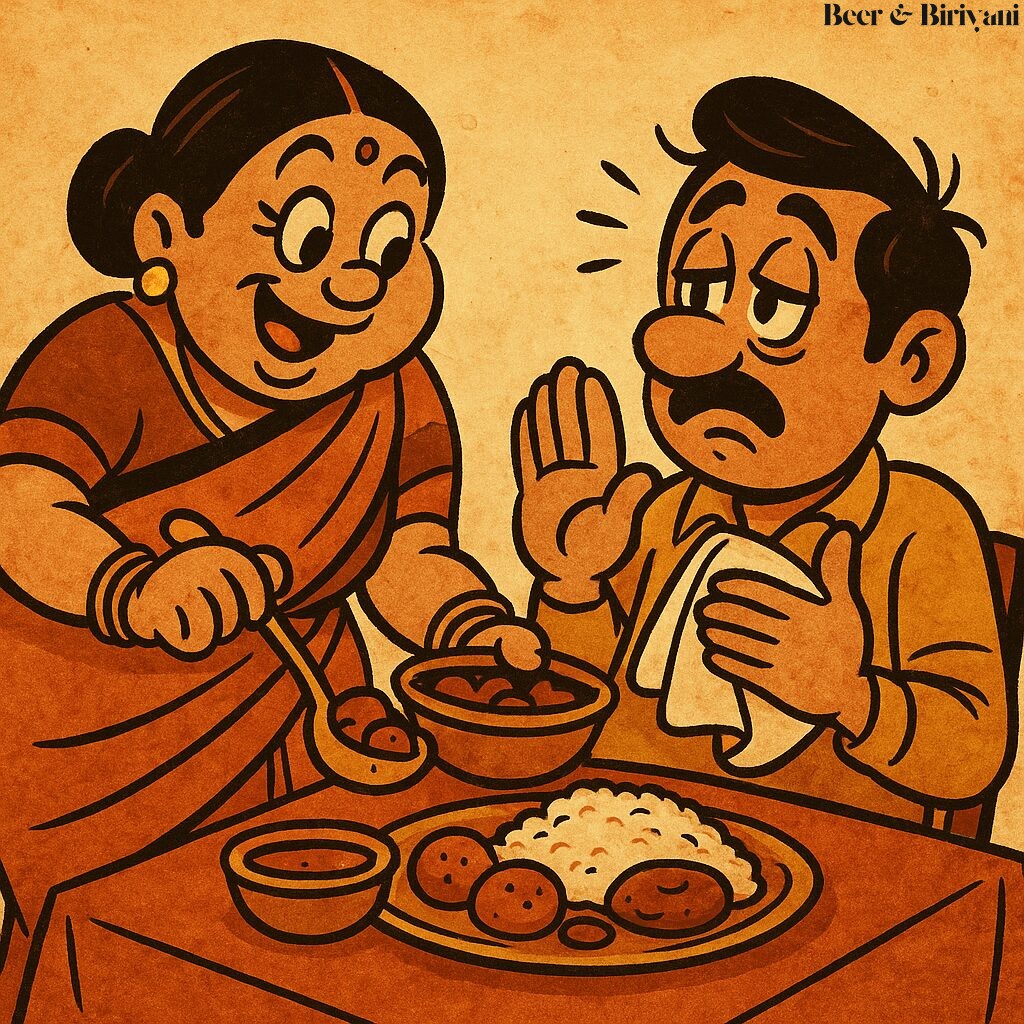In my grandmother’s kitchen in Dadar, the most sacred item wasn’t the tulsi plant or even the framed photo of Ganpati—it was the pickle jar. Large, glass-bodied, sun-cured, and tightly sealed, it sat in a corner like an elderly relative who didn’t say much but was deeply respected. And if you dared approach it with a wet spoon, you were instantly scolded like you’d tried to wash your hands in the haavan kund.
“Don’t touch the pickle jar with a wet spoon,” she’d say, swatting your hand mid-motion. “It’ll go bad!” she’d add, as if spoilage was a personal betrayal. No explanation. Just kitchen law. Passed down like heirloom spice mixes. You didn’t question it. You just dried the spoon, apologized to the pickle, and moved on.
Pickle Is Not Just a Condiment. It’s a Covenant.
Indian pickles—achaar—are not fast food. They’re slow-brewed intention. Sliced, spiced, salted, and sunbathed for weeks. Pickle-making is practically a religious practice: it involves timing (often tied to lunar cycles), abstinence (no tasting mid-process), and strict protocol. And nothing unravels this delicate ecosystem faster than water.
The science is simple. Most pickles rely on oil and salt as natural preservatives. Water introduces moisture that fosters bacterial growth and mold. It breaks the emulsion, softens the crunch, and makes your glorious nimbu achaar smell like it needs a priest instead of a plate. But what starts as microbial caution becomes generational superstition. Because in Indian kitchens, preservation advice always comes wrapped in folklore.
Kitchen Taboo or Ancestral Logic?
There are many such rules. Don’t cut nails near food. Don’t cook when you’re angry. Don’t stir milk while menstruating (yes, really). And of course, don’t touch the pickle with dirty, damp, or doubting hands. Each has a mix of reasons—some scientific, some social, some rooted in old ideas of hygiene, others in old ideas of control.
But the pickle jar? That one has universal consensus. Whether you’re in Gujarat or Odisha, Tamil Nadu or Punjab, everyone agrees: keep it dry, keep it safe. It’s the culinary equivalent of “don’t mess with grandma’s temple shelf.” Even atheists comply.
The Spoon That Ruined Summer
I once ruined a whole batch of mango pickle. I was 15, bold, and slightly snacky. I dipped a wet spoon (fresh from rinsing curd off) into the jar for a late-night taste. The next morning, white fuzz had bloomed across the surface like an angry cloud. My mother looked at it, looked at me, and quietly muttered, “This is why we can’t have nice things.”
We buried that jar like a fallen soldier. And from that day on, a dry spoon lived permanently tied to the pickle lid with a rubber band. Like an offering. A reminder. A truce.
Pickle Rules Across the Country
In Tamil Nadu, pickle jars are placed on verandas to soak in the sun—turning mangoes into oorugai over days of slow caramelization. In Andhra, the fiery avakaya must be stored in ceramic jars, untouched for at least a week after it’s made. In Bengal, mustard oil-laden shutki pickles come with the warning: “Keep your hands out unless you’re serious.”
All of these traditions come with dos and don’ts. Use only wooden or stainless steel spoons. Never open the jar at night. Stir only clockwise. Whether you believe the why or not, the ritual matters. Because with pickle, it’s not just about food safety. It’s about respect. For the process. For the patience. For the hands that made it and the sun that sealed it.
The Pickle Jar in Diaspora
In Austin, my pantry holds one jar of mango pickle brought carefully from India and another made here—my own attempt. I’ve taught my son the rule: no wet spoons. He once asked why, and I began to explain bacteria and pH levels. Then I stopped and just said, “Because it’s not done.”
Some things don’t need data. Just tradition. Just trust. Just the memory of a stern nani with sharp eyes and sharper pickles, who kept her kitchen like a temple and her jars like sacred texts.
The Ritual Endures
So yes, you can call it superstition. Or ancestral science. Or both. But if you’ve ever watched a pickle jar turn cloudy from carelessness, you’ll know why we’re so cautious. The wet spoon rule is a tiny act of reverence. A reminder that some parts of cooking deserve silence, attention, and dry hands.
And when you finally scoop that perfect piece of sun-cured mango onto your plate, glossy with oil, bold with spice, you’ll be glad you listened.
Born in Mumbai, now stir-frying feelings in Texas. Writes about food, memory, and the messy magic in between — mostly to stay hungry, sometimes just to stay sane.












